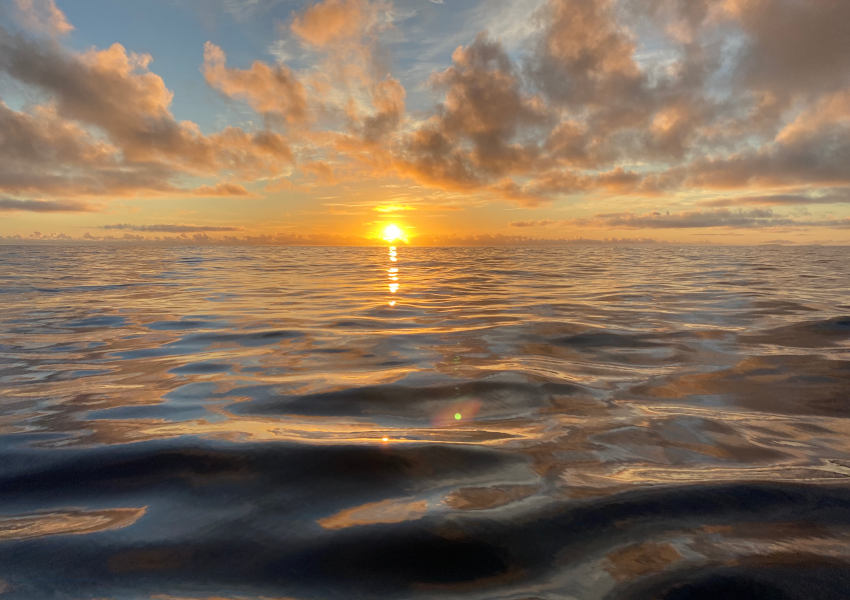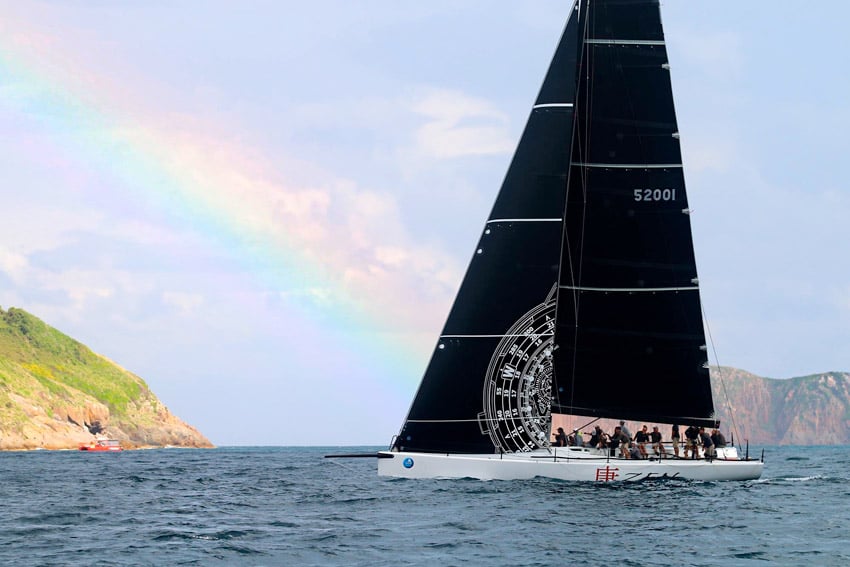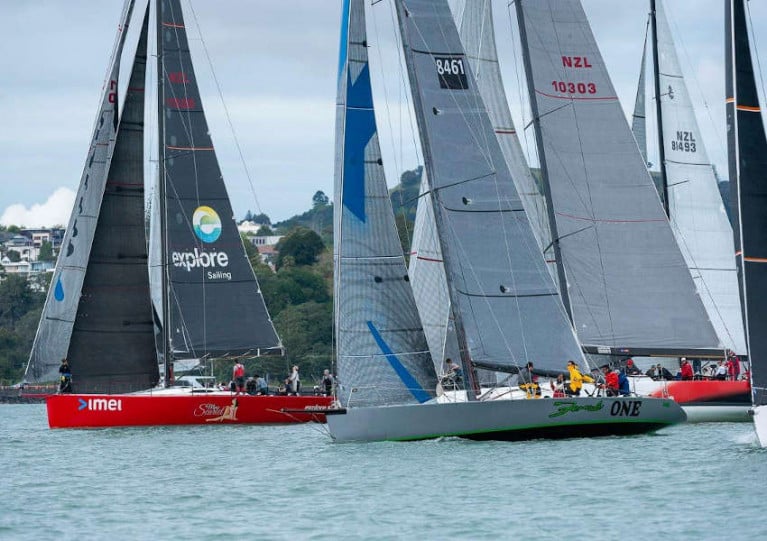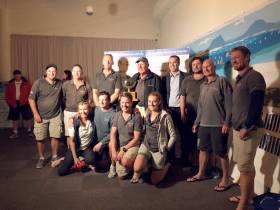Displaying items by tag: Mia Connolly
Homing in on her second anniversary Down Under, West Cork sailor Mia Connolly reports to Afloat.ie that she recently completed one of New Zealand’s biggest coastal races.
Mia crews on trim as well as bow, mid-bow and pit for the Auckland-based Miss Scarlet, a Reichel/Pugh IRC52, which finished 11th overall in the Coastal Classic on Saturday 24 October.
She tells us: “Trimming the code zero at the start was the highlight for me — and the second highlight was the dolphins almost touching my sea boots while on the rail.
“We may not have been the best 52 footer but we certainly were one of very few boats who stuck it out until the end.”
The race was one more remarkable achievement for the former self-confessed “home bird” who upped sticks for Australia in November 2018 in the hopes of “that Sydney Harbour dream life”.
And for the first year it was indeed a dream come true — as the experienced pitman and trimmer quickly joined the crew of Zen, Gordon Ketelbey’s TP52 which that took the IRC Division 1 title in the 2019 Garmin NSW IRC Championship.
But her time in Australia came to an abrupt halt just 12 months into her adventure when “someone in the visa office decide they were having a bad day and declined my road to residency”.
Mia was given just one week to leave the country — during the most crucial training period ahead of the 2019 Sydney to Hobart Yacht Race.
“So, I had to [pack up] lock, stock and barrel once again on my own and move to New Zealand, but with a lot more hard work and stress,” she says — though she did return for one last hurrah in the Sydney-Hobart.
“Almost a year later and I still can’t believe I completed it and on one of the most popular TP52s in Australia.”
In hindsight, Mia’s unplanned relocation across the Tasman Sea was the right move at the right time — just weeks before the coronavirus pandemic and its associated restrictions wreaked havoc across the world’s sailing communities.
In the months since the pandemic’s first wave, New Zealand emerged as one of the few countries to get the virus under control, with life there more or less returning to normal — and now Mia finds herself “in the heart of it all”.
 Mia captures the sunset from the rail of Miss Scarlet
Mia captures the sunset from the rail of Miss Scarlet
“Sailing and racing is continuing here; I am lucky to be in Auckland,” she says. “Everything is happening here with the America’s Cup. I am in the heart of it all.”
However, as she comes up on her second anniversary in the antipodes, Mia can’t help missing the connection with her loved ones back home.
“I left Ireland November 5th, 2018. It’s coming up to my two-year mark after leaving home,” she tells us.
“I’m dying to see my family as I didn’t get home the first year because I was racing so much and this year, well, if I left New Zealand I wouldn’t be getting back anytime soon.”
Afloat looks forward to further updates from Mia as she continues her sailing exploits in New Zealand.
West Cork’s Mia Connolly In Full Sail With TP52 Crew Just Months After Move Down Under
A young Irish sailor is making her mark Down Under after swapping the shores of Skibbereen for the bright lights of Sydney.
Self-described “home bird” Mia Connolly had only spent a week outside of Ireland before upping sticks for Australia six months ago.
But she’s since put her years of experience as a pitman and trimmer — both in student yachting and later on such vessels as the J92 Jostler and Royal Irish Quarter-Tonners Cri Cri and Enigma — into a new challenge, crewing Gordon Ketelbey’s TP52, Zen.
Mia set off from Ireland last November with the dream of “that Sydney Harbour dream life”, including witnessing the Sydney to Hobart Race with her own eyes.
 Gordon Ketelbey’s TP52, Zen
Gordon Ketelbey’s TP52, Zen
Yet within just a few short months she’s become a big race winner herself, assisting with the bow as part of the crew that took the IRC Division 1 title in the 2019 Garmin NSW IRC Championship last week.
That result in the Sail Port Stephens regatta came after victory in the Sydney Harbour Regatta State Championships, on the same waters she’d dreamed of watching others race this time year ago.
Mia also crews Ketelbey’s Farr 40, also named Zen, which just took part in its class national and state championships.
Such achievements don’t seem so surprising from someone who grew up in a leisurely sailing family, where roundings of Fastnet Rock were a regular feature of her childhood and Cape Clear Island “felt like a second home”.
Mia tells Afloat.ie: “It is now coming up to my six months here in Sydney and my journey in getting this far has no doubt been a challenge, but I guess dedication has no limits and I’m looking forward to seeing how the future unfolds.”





























































